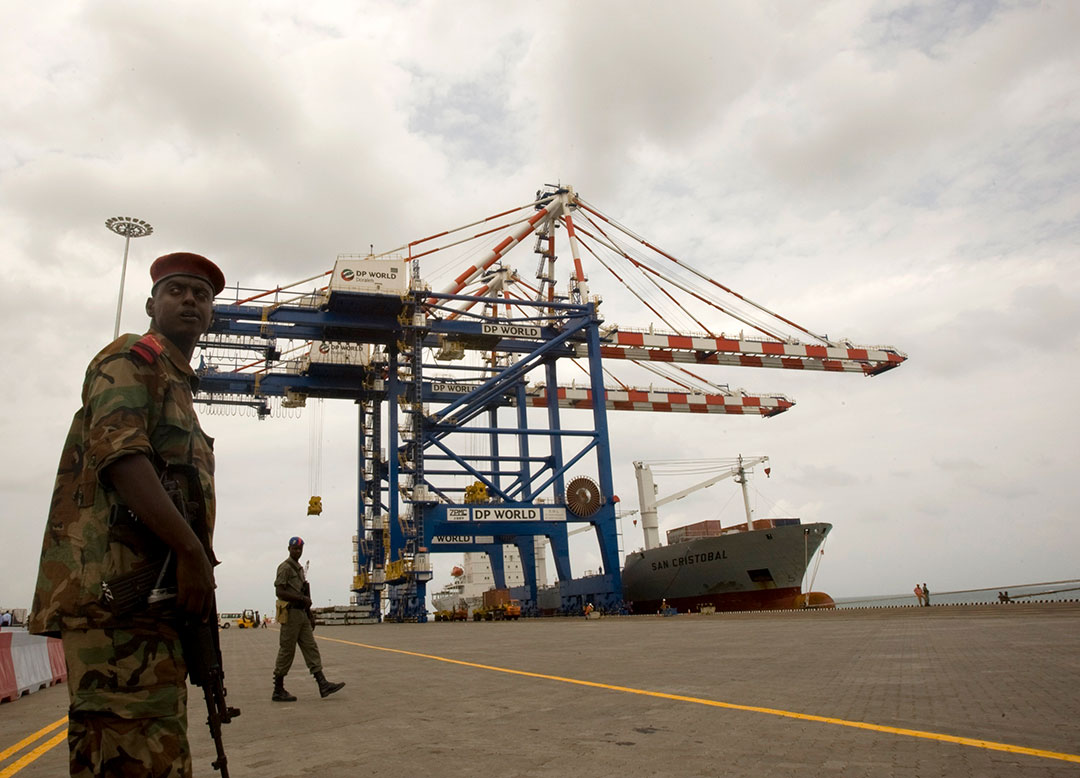Could China Weaponize Ports in Africa?
ADF STAFF
China’s Belt and Road Initiative (BRI), a sprawling strategic infrastructure program, has been viewed with skepticism since its unveiling in 2013.
Through the years, the seeds of doubt have grown as numerous developing countries agreed to billions of dollars in loans that have proven difficult to repay.
Evidence of China’s approach is scattered about Africa, as BRI projects have led to local protests and government investigations over opaque loans, crippling debt, and increasing reliance on Chinese products, labor and commercial enterprises.
Now, there is growing concern that China could militarize one sector of its BRI assets — ports.
Two think tanks raised the issue of Chinese-owned ports serving uses of commerce now, military later. The Asia Society Policy Institute (ASPI) in early September published “Weaponizing the Belt and Road Initiative,” and the Center for Strategic and International Studies (CSIS) released “Influence and Infrastructure: The Stakes of Foreign Projects.”
The CSIS report identified 46 ports in Sub-Saharan Africa with ties to China.
“These ports are positioned along each coast, providing Chinese access to main maritime routes and chokepoints,” wrote Judd Devermont, director of CSIS’ Africa Program. “There are signs that Beijing plans to use these port investments to increase its military and political reach.
“At least six of the ports captured within this data were also visited by Chinese naval vessels or are dual-use civilian-military ports. Seven of the 11 ports operated by Chinese entities are deep-water, opening the possibility for larger commercial, but also military vessels, to dock.”
In Djibouti, China is using economic influence to push its security goals.
The vast majority of Djibouti’s external debt is owed to Chinese banks for BRI projects. One of them is the Port of Doraleh, the largest and deepest port in Africa. Chinese banks control its operations, which mainly serve Chinese companies.
Two months after the port was completed, China opened its first and only overseas military base just 5 kilometers west. The United States’ only permanent military base in Africa lies just a few kilometers southeast.
The International Monetary Fund (IMF) in December 2018 sent a team to Djibouti, which estimated the country’s debt at 104% of its gross domestic product. In a report on its website, the IMF noted that the country’s strategy of investing in infrastructure “has resulted in debt distress, which poses significant risks.”
Similarly, concerns have grown in Kenya that deep debt to China could result in the creditor taking control of two key BRI assets: the Mombasa-Nairobi Standard Gauge Railway and the deep-water Mombasa Port.
Those concerns are shared in the West, as ASPI President Kevin Rudd noted China’s “apparently insatiable appetite for ports worldwide” in his company’s report.
“Particular suspicion has accrued to seemingly overbuilt but underutilized ports along important Indian Ocean trade routes that appear more suitable as potential naval bases than as commercial operations,” he wrote.


Comments are closed.